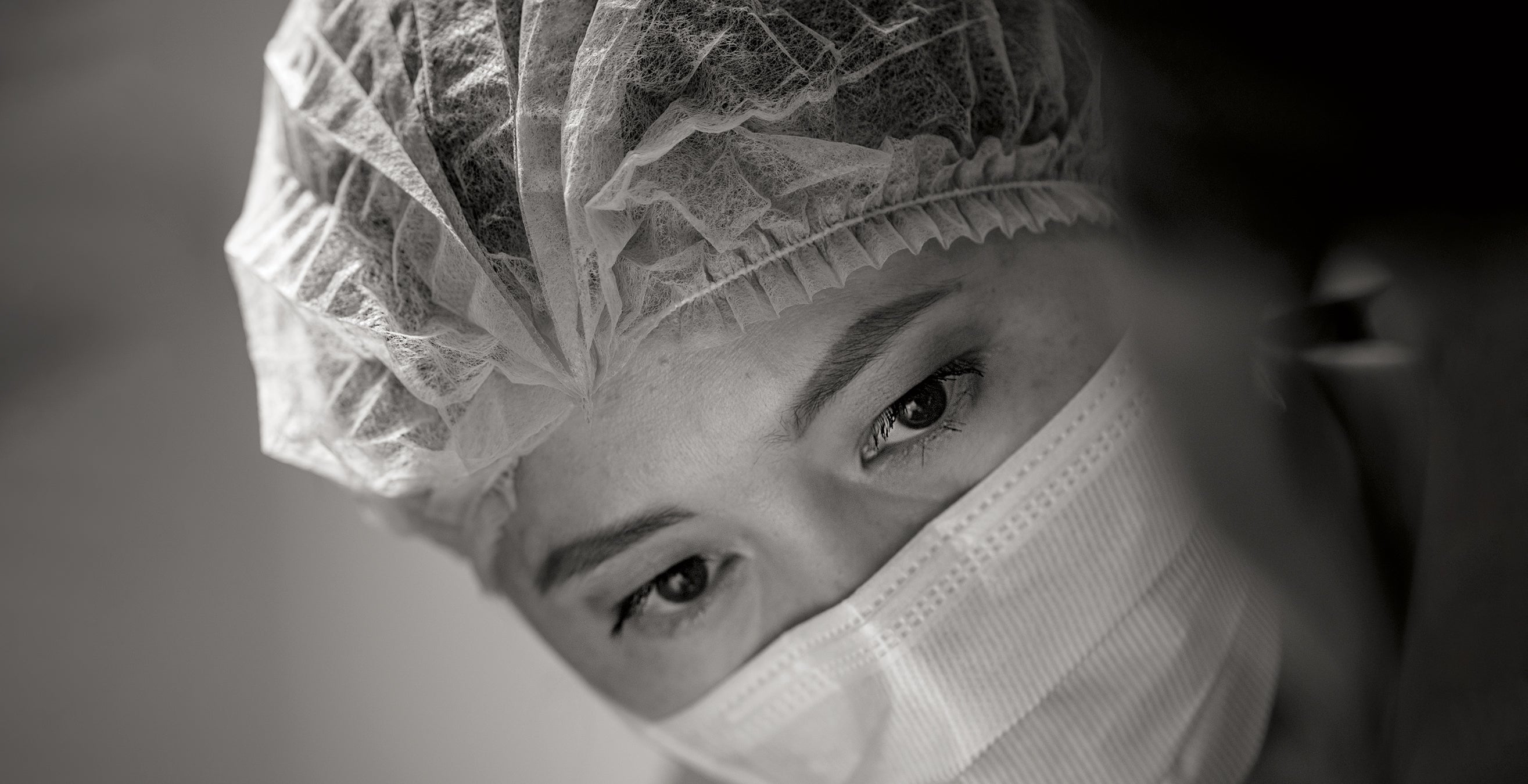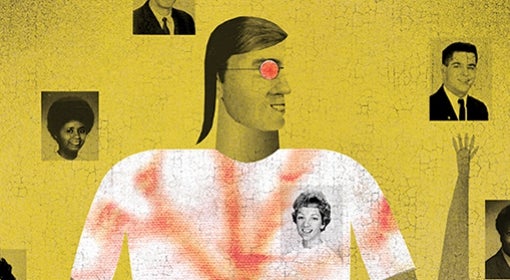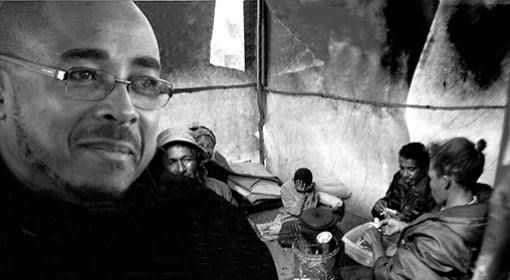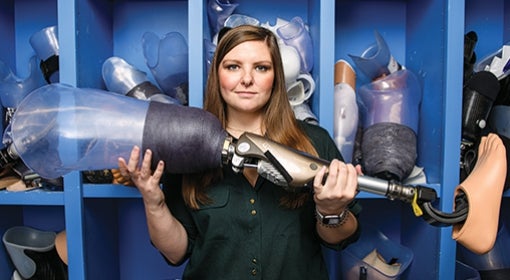These words from Chancellor Patrick Gallagher were first published in March by the Pittsburgh Post-Gazette. They are as true today as they were then.
Earlier this week, I talked with students and parents as they pushed about the University of Pittsburgh’s iconic blue moving bins filled with personal belongings. These families were moving home, six weeks too soon—an unwelcome exodus happening at campuses nationwide.
This is the last thing that any of us wanted. Businesses hitting pause. Playgrounds silent. Streets emptied. It’s the Pittsburgh we all know and love, but with a barely discernable pulse.
This pandemic has offered all of us an unwelcome crash course in public health management, and it’s become clear that our collective shift to working, learning and living remotely is contributing to a bigger cause: our health care system’s capacity to handle this pandemic.
We have likely all heard the advice from one of Pittsburgh’s most beloved figures—Fred Rogers. In the face of tragedy, he reminded us to “look for the helpers.” Except, now, the helpers need us.
Pittsburgh is one of the most vibrant medical and scientific hubs in the nation, with more than 200,000 health care workers in our region. These helpers are our family members, neighbors and friends—front-line workers facing an unprecedented challenge.
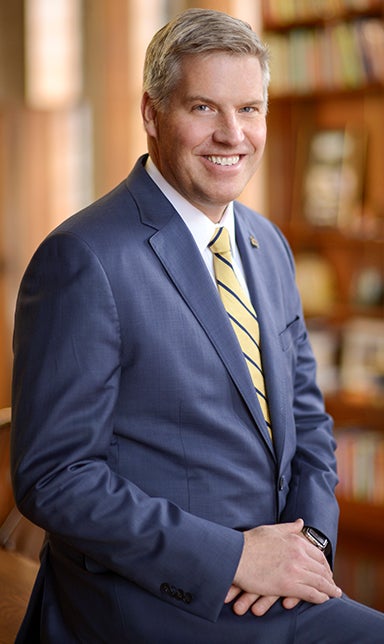 At the University of Pittsburgh, this effort is deeply personal. Our researchers are rushing to unlock the mysteries of preventing and treating COVID-19 infections. Our talented alumni, members of Pitt’s world-renowned health sciences schools, are reporting for shifts in thousands of hospitals and clinics across the nation. And our faculty—some of the finest medical experts in the country—have cared for our family and friends in exam and operating rooms across the region.
At the University of Pittsburgh, this effort is deeply personal. Our researchers are rushing to unlock the mysteries of preventing and treating COVID-19 infections. Our talented alumni, members of Pitt’s world-renowned health sciences schools, are reporting for shifts in thousands of hospitals and clinics across the nation. And our faculty—some of the finest medical experts in the country—have cared for our family and friends in exam and operating rooms across the region.
Absent a medical treatment or vaccine and without the benefits of built-up immunity, the only real tools that we have for combating COVID-19 are distance and time. If we slow the spread of the disease enough, there’s hope. Our world-class health care system will be left to manage a substantial, but largely surmountable, outbreak. But if the spread of COVID-19 runs unchecked, it will almost certainly overwhelm the system and its workers.
The solution is simple—a combination of individual and collective actions, everything from frequent handwashing to widescale social distancing. But these steps only work if everyone plays their part. If too many of us opt out in ambivalence, then we will all lose.
This playbook isn’t painless. In fact, the sacrifices required are profound. COVID-19 has upended our daily routines and forced unwanted changes to the ways we study, live, worship, play and work. In tackling this crisis, the machinery of our nation’s vast economy is coming to a grinding halt—and the full scale of the pandemic’s economic impact is becoming clear.
But the stakes give our sacrifices a new meaning. We are undertaking a powerful and shared act to support our region’s response to this pandemic and—equally important—to protect the thousands of Pittsburghers working the front lines.
Acknowledging our collective responsibility within this new abnormal is critical. The finish lines will move, the rules of engagement will change, and lives will unknowingly be lost or saved depending on how much we—individually and collectively—can adjust.
To again borrow the words of our favorite cardigan-wearing leader: “What really matters is helping others win, too, even if it means slowing down and changing our course now and then.”
The good news is that Pittsburghers could tour the world giving motivational talks on the art of resiliency and the power of working together. And our city itself, an inveterate shape-shifter, is soldered together by equal parts grit and a strong sense of community. Our past successes have laid bare the vital importance of running life’s hard races together, and now—more than ever—we must remember these lessons.
With an untold number of human lives hanging in the balance, our only option is to fight this pandemic together. We must look to and figuratively lean on one another and acknowledge our role in the bigger picture. And now is our time to truly help the helpers, our health care heroes across the region, so that this becomes a race we can—and will—win.
How you’re “helping the helpers”
Your support for the COVID-19 Vaccine Research Fund—totaling $1.2 million and counting—is giving Pitt researchers a chance to focus on what they do best: develop safe, effective vaccines as quickly as possible. Already, these scientists have identified potential coronavirus vaccines.
Your contributions to the Health Sciences COVID-19 Response Fund are helping members of our health sciences schools fill in critical knowledge gaps related to COVID-19. Aided by you, they’re busy modeling the spread of COVID-19, raising awareness about proper mask wearing, investigating the efficacy of plasma treatments—and more.
Your gifts to the Student Emergency Assistance Fund have enabled us to award grants to Pitt students facing financial hardships because of the pandemic. The applications for this fund continue to roll in, with most qualifying students receiving $600 each.
To learn more and make your own donation, visit the Doing Our Part: Pitt’s COVID-19 Response project at engage.pitt.edu/fighttogether.
This article appears in the Summer 2020 issue of Pitt Magazine.

